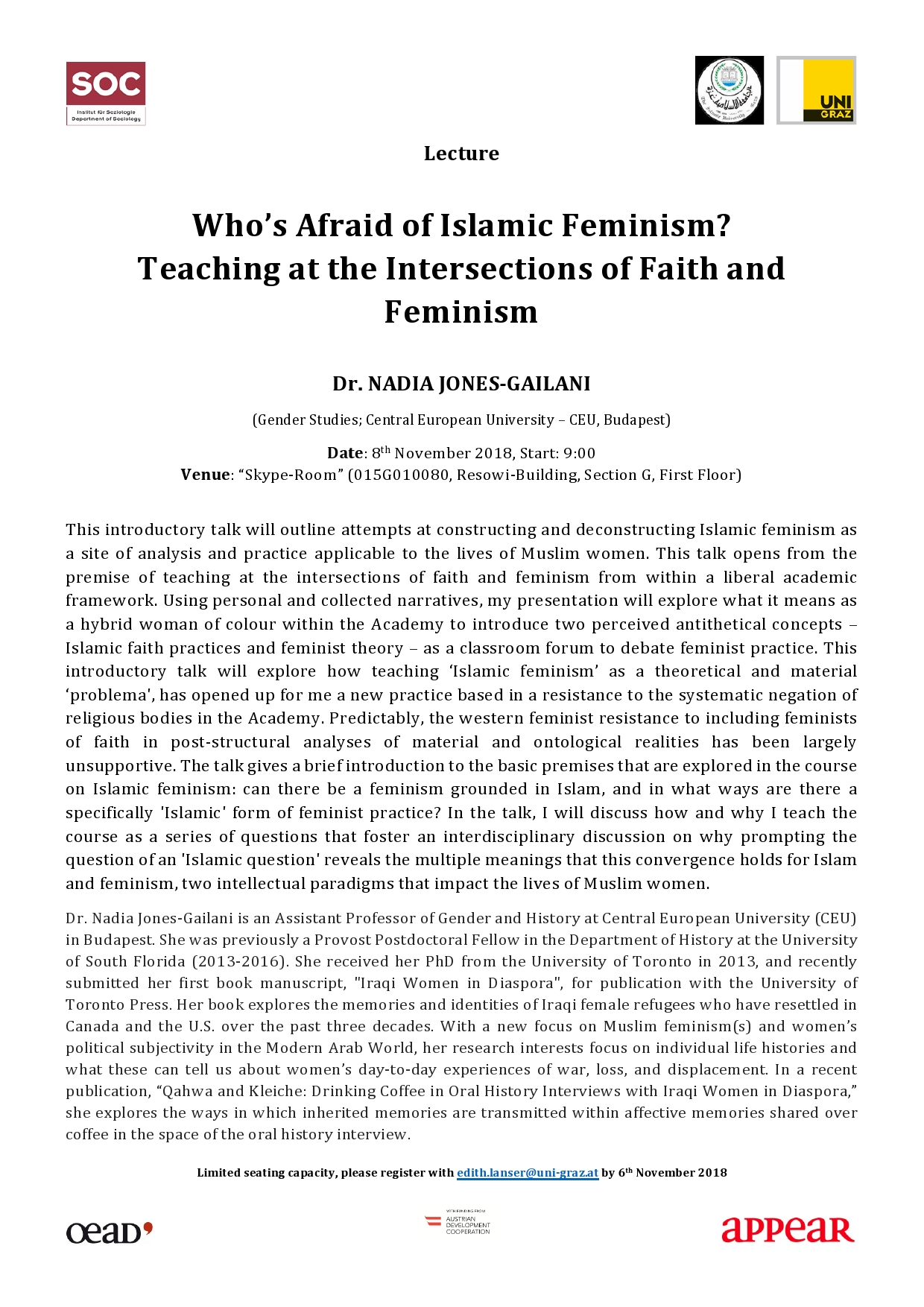Registration ends 07.11.2018, 00:00
This introductory talk will outline attempts at constructing and deconstructing Islamic feminism as a site of analysis and practice applicable to the lives of Muslim women. This talk opens from the premise of teaching at the intersections of faith and feminism from within a liberal academic framework. Using personal and collected narratives, my presentation will explore what it means as a hybrid woman of colour within the Academy to introduce two perceived antithetical concepts – Islamic faith practices and feminist theory – as a classroom forum to debate feminist practice. This introductory talk will explore how teaching ‘Islamic feminism’ as a theoretical and material ‘problema', has opened up for me a new practice based in a resistance to the systematic negation of religious bodies in the Academy. Predictably, the western feminist resistance to including feminists of faith in post-structural analyses of material and ontological realities has been largely unsupportive. The talk gives a brief introduction to the basic premises that are explored in the course on Islamic feminism: can there be a feminism grounded in Islam, and in what ways are there a specifically 'Islamic' form of feminist practice? In the talk, I will discuss how and why I teach the course as a series of questions that foster an interdisciplinary discussion on why prompting the question of an 'Islamic question' reveals the multiple meanings that this convergence holds for Islam and feminism, two intellectual paradigms that impact the lives of Muslim women.
Dr. Nadia Jones-Gailani is an Assistant Professor of Gender and History at Central European University (CEU) in Budapest. She was previously a Provost Postdoctoral Fellow in the Department of History at the University of South Florida (2013-2016). She received her PhD from the University of Toronto in 2013, and recently submitted her first book manuscript, "Iraqi Women in Diaspora", for publication with the University of Toronto Press. Her book explores the memories and identities of Iraqi female refugees who have resettled in Canada and the U.S. over the past three decades. With a new focus on Muslim feminism(s) and women’s political subjectivity in the Modern Arab World, her research interests focus on individual life histories and what these can tell us about women’s day-to-day experiences of war, loss, and displacement. In a recent publication, “Qahwa and Kleiche: Drinking Coffee in Oral History Interviews with Iraqi Women in Diaspora,” she explores the ways in which inherited memories are transmitted within affective memories shared over coffee in the space of the oral history interview.
Next lectures:
Doing Research under Occupation – Knowledge Production in and about Palestine
Helmut Krieger, University of Vienna
20th November 2018, Start: 11:30
The Human Rights of Children with Special Emphasis on the Girl Child
Bernadette Knauder, European Training and Research Centre for Human Rights and Democracy, Graz
13th December 2018, Start: 11:30
Gender Issues in Social Participation of Refugees: Experiences from the Gaza Strip
Gudrun Kramer, Austrian Study Centre for Peace and Conflict Resolution
17th January 2019, Start: 9:30
